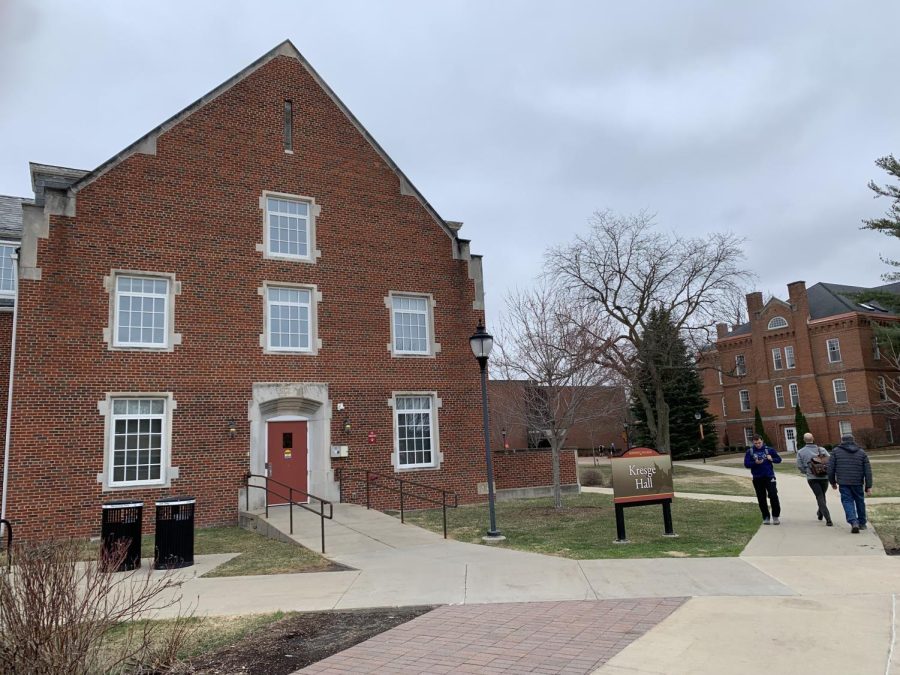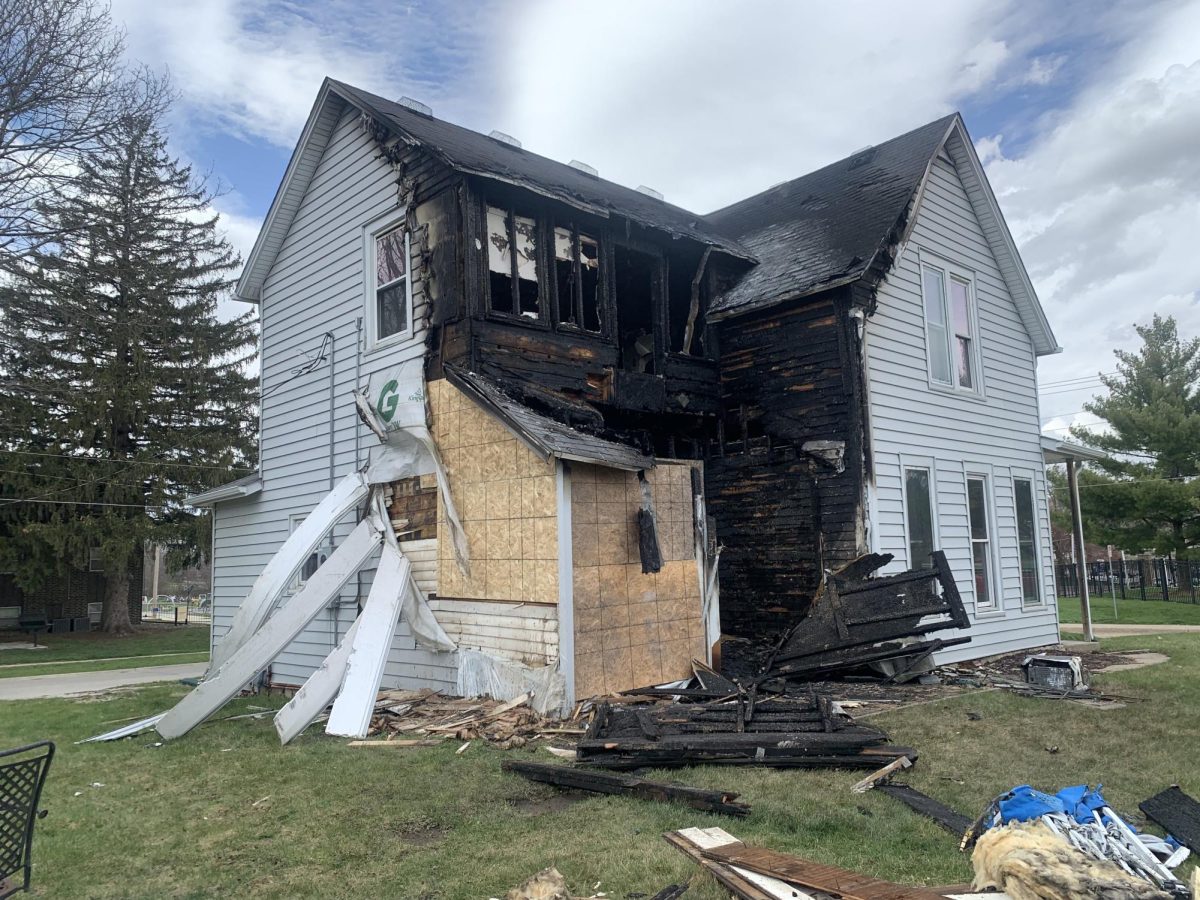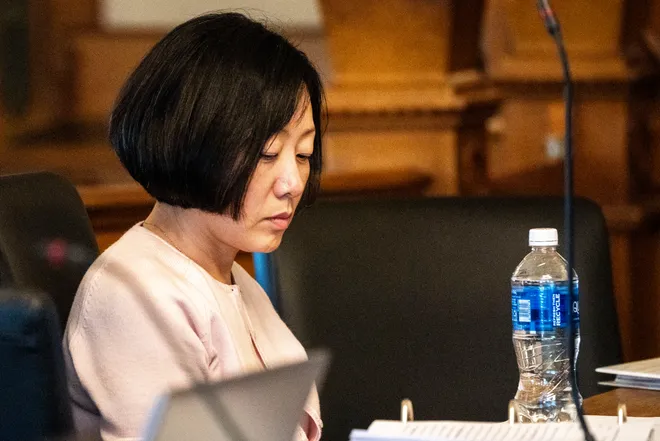Students across campus have been frustrated about a recent requirement that those who have extra space in their on-campus housing find people to fill the available bed(s) or buy out the space for an additional fee for those in a four-person apartment.
An email was sent out on Jan. 30 by Heather Embry-Cunningham, associate director of residence life, to students who have the extra room. This email listed all of them by name, which apartment buildings they lived in and their room number.
“Because there is an open bed space in your room,” the email said. “You need to review through the options listed below and then reply back to this email by February 1st by 4 p.m. of what you’d like to do.”
Many students felt blindsided by the request and were eager to voice their frustrations anonymously on YikYak.
However, one set of roommates was able to speak in person.
Juniors Wyatt Manning, Keelin Curley and Jeremyah Garland live in Clinton apartments and were not prepared when their fourth roommate moved out.
“It was a really sudden moving,” Manning said.
“She ended up moving out to consolidate with an international student,” Curley said. “It happened within a week of her letting us know.”
Consolidation is not new to campus, nor is it unique to Simpson. It can happen multiple times throughout a semester, most often impacted by Greek life recruitment.
“At the end of fall semester, the women who have joined sororities end up moving into the sorority houses, if they choose to,” Embry-Cunningham said in an interview with The Simpsonian. “Then, when we start the spring semester, we have to do what’s called an occupancy audit.”
An occupancy audit is done every semester. Residence Life works with the registrar’s office to make sure that every student who is assigned housing is actually on campus where they need to be, making necessary changes.
The consolidation process is outlined in the terms and conditions for housing contracts as well as in the student handbook. It states that if a space gets below 50% occupancy or less, students must either have roommates selected or be relocated.
Of the 24 listed in the email, however, 21 are apartments that are at 75% capacity.
“Why they would decide to just seemingly out of random, try and start grouping as many people together as possible with there being such a large majority of us just missing like one person,” Curley said.
“It does seem a little direct of what the school wants and the size of how many people were included on the email,” Manning said. “It’s certainly a lot of people, most of them being at 75% capacity. So, it just seemed a little random and out of place.”
When the email was first sent out, Embry-Cunningham was in the process of doing some emergency relocation for some residents who were having facility issues, namely with the roof, from all the ice and snow.
Having spaces open allows relocations like this to happen.
“I like to call them my ‘oh-shit spaces,’” Embry-Cunningham said. “Like, ‘oh shit, this has happened I need a new place to relocate these students because I can’t expect them to live in a space with a massive maintenance issue that is directly impacting their ability to live.”
The goal of the email was to allow students time to find people to fill this space. The deadline was not the timeline students had to move but rather the timeline for them to start their decision process.
“I’m not even sure where to go with it currently. Because if we find a fourth roommate that doesn’t mesh well, then we’re going to have to figure out how to reconsolidate everything,” Curley said. “I also feel like that since it was such short notice that she moved out, we’re being penalized for not really having a fourth roommate, which to me doesn’t necessarily make sense.”
“For the folks who haven’t contacted us, they’re going to get a final notice of ‘here’s the deal, we haven’t heard from you, we’re going to either move somebody in’ or, in some instances, where they’re the odd person out, they’re given the final opportunity to buyout the space,” Embry-Cunningham said. “They have to understand that, even though you’re the only one in here right now, at any time you can have someone who’s assigned to you if we have a roommate issue that arises.”
There were also some concerns about the weight that students will now have due to consolidation.
“I feel like there’s quite a few of us, not just us alone, who have financial burdens that we can’t really pay for another person, but we also we can’t really pay to have this extra space like just be extra,” Curley said. “But we also don’t want to bring a problem into the room.”
In these situations, a buyout is not always an option, depending on the amount of space that is either leftover or needs to be left unoccupied.
“There’s definitely the financial consideration. My other question would be are they doing this to try and get more money?” Curley said. “That’s what I’m concerned about. They’re already kind of gouging us a little bit with raising tuition prices, and then just meal plan prices, in general, seem to be a little higher. Is this one of those money-gouging things, or are they genuinely just trying to consolidate apartments?”
“We need to have empty space in the event of an emergency,” Embry-Cunningham said. “In fact, just a couple of weeks ago, when I was sending out the consolidation emails, I had three different apartments where I was having to look at doing some emergency relocation for those residents because they were having massive facility issues from all of the ice and snow that was on the roof.”
She likes to keep one apartment unit available in each building because issues can arise where a relocation is needed, and at least those students can stay within the same building.
Of the spaces set aside last year, each of them ended up being filled between maintenance issues, significant roommate issues and sometimes students who have received accommodation approvals through Student Support Services (SAS) as the year has gone on.
“Sometimes students aren’t able to get that to happen before they come for the fall semester,” Embry-Cunningham said. “And that process can take a while.”
A problem students keep coming back to is the idea of throwing one person into their otherwise comfortable arrangement or being required to move.
“I’ve talked to a couple of other people in the situation, and there isn’t a single student that seems comfortable with the idea of having to be moved in or out either by force or having to pay extra,” Manning said.
In a situation off campus, where a roommate decides to break the lease and move out, the rent that was a multiple-person responsibility now falls onto whoever is left.
“So, you might end up having to relocate into something that’s a little less expensive or with somebody else,” Embry-Cunningham said. “So, while it is frustrating, it’s going to be something that happens to you in post-college life.”
There is also the issue of space. With Simpson welcoming its largest first-year class in the past five years, residence life needs every space possible to be available, so there is a place for everyone.
Being in a co-ed apartment, whoever will fill the space will be sharing Curley’s sleeping space.
“It’s my room,” Curley said. “So if they place me with somebody that I’m not comfortable with, I will fight.”


























